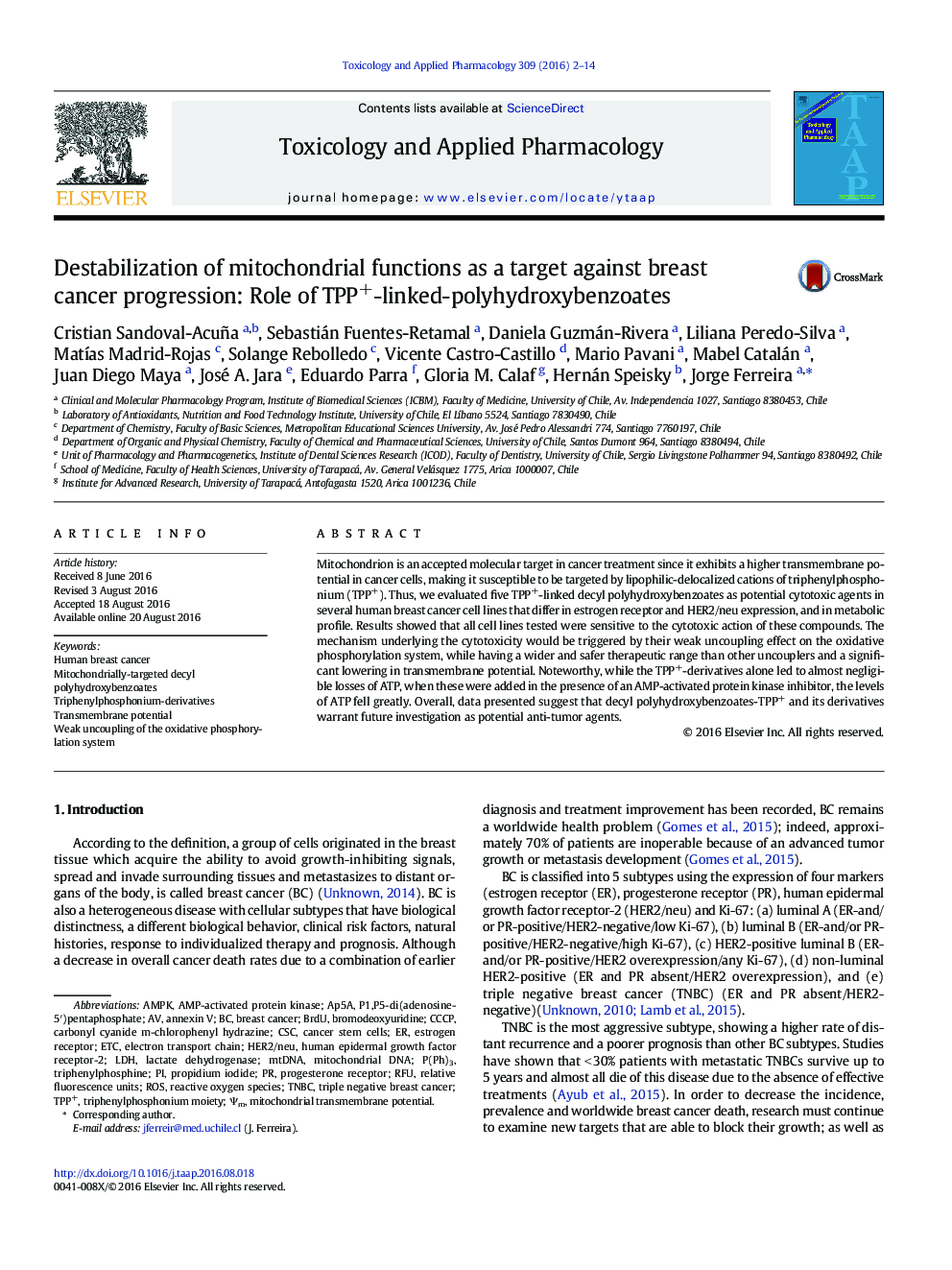| Article ID | Journal | Published Year | Pages | File Type |
|---|---|---|---|---|
| 2568004 | Toxicology and Applied Pharmacology | 2016 | 13 Pages |
•TPP+-polyhydroxybenzoates are cytotoxic to various subtypes of breast cancer cells.•Cytotoxicity is not-dependent on the expression of estrogen/growth factor receptors.•Cytotoxicity appears to be triggered by a weak mitochondrial uncoupling effect.•Effects include loss of transmembrane potential and apoptosis was detected.•TPP+-polyhydroxybenzoates inhibit migration of highly metastatic cells.
Mitochondrion is an accepted molecular target in cancer treatment since it exhibits a higher transmembrane potential in cancer cells, making it susceptible to be targeted by lipophilic-delocalized cations of triphenylphosphonium (TPP+). Thus, we evaluated five TPP+-linked decyl polyhydroxybenzoates as potential cytotoxic agents in several human breast cancer cell lines that differ in estrogen receptor and HER2/neu expression, and in metabolic profile. Results showed that all cell lines tested were sensitive to the cytotoxic action of these compounds. The mechanism underlying the cytotoxicity would be triggered by their weak uncoupling effect on the oxidative phosphorylation system, while having a wider and safer therapeutic range than other uncouplers and a significant lowering in transmembrane potential. Noteworthy, while the TPP+-derivatives alone led to almost negligible losses of ATP, when these were added in the presence of an AMP-activated protein kinase inhibitor, the levels of ATP fell greatly. Overall, data presented suggest that decyl polyhydroxybenzoates-TPP+ and its derivatives warrant future investigation as potential anti-tumor agents.
Graphical abstractFigure optionsDownload full-size imageDownload high-quality image (213 K)Download as PowerPoint slide
